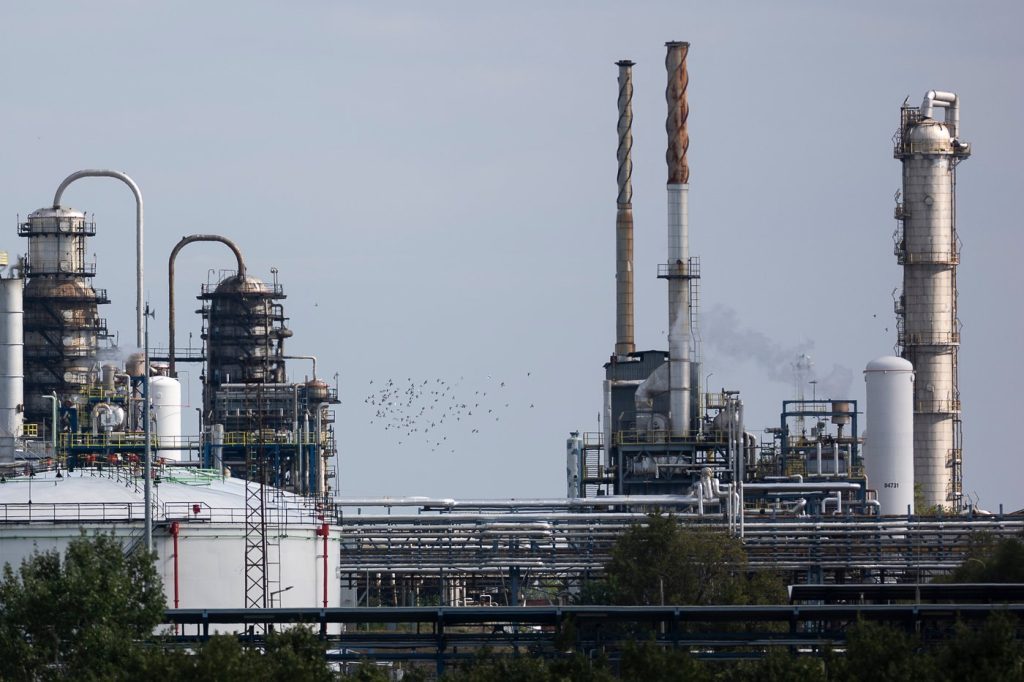BUDAPEST, Hungary (AP) – Firefighters have successfully contained a significant blaze that broke out overnight at Hungary's primary oil refinery, the Danube Refinery located in Százhalombatta, south of the capital, Budapest. Hungarian energy company MOL announced on Tuesday that no injuries have been reported in connection with the incident.
The fire ignited on Monday night within a processing unit of the refinery. MOL released a statement on the Budapest Stock Exchange website which highlighted that the cause of the fire is currently under investigation. Emergency protocols were enacted promptly, and efforts to restart unaffected units of the refinery are underway as damage assessments continue.
MOL is prioritizing domestic fuel supplies during this crisis and is contemplating the use of Hungary’s strategic reserves to mitigate any potential shortages. Prime Minister Viktor Orbán has communicated with MOL executives and the interior minister regarding the situation. He reassured the public via social media that Hungary’s fuel supply remains secure and emphasized a thorough investigation into the circumstances leading to the fire.
The Százhalombatta refinery serves as Hungary's sole significant crude processing facility, primarily refining oil sourced from Russia. This connection to Russian oil is increasingly unusual within the European Union, particularly since the bloc implemented an embargo on Russian oil shortly after the onset of the Ukraine conflict in February 2022. In alignment with this stance, the EU proposed plans this year to gradually cease all imports of Russian oil and gas by the end of 2027.
While many European nations have worked to reduce their dependency on Russian energy sources, Hungary has continued to maintain and even increase its imports from Russia. The Hungarian government has argued that there are no viable alternatives to sustain its energy needs.
As the situation unfolds, authorities have assured the public that air quality in the vicinity of the refinery is being monitored continuously, with no dangerous levels detected. According to reports from Hungary's disaster management authority, the refinery's own fire brigade was the initial responding team, followed by professional firefighters from nearby regions.
Eyewitnesses reported that the flames and smoke from the fire were visible from several kilometers away, indicating the scale of the incident. The ongoing assessment of the situation highlights the potential implications for Hungary’s energy sector and logistical strategies moving forward.











